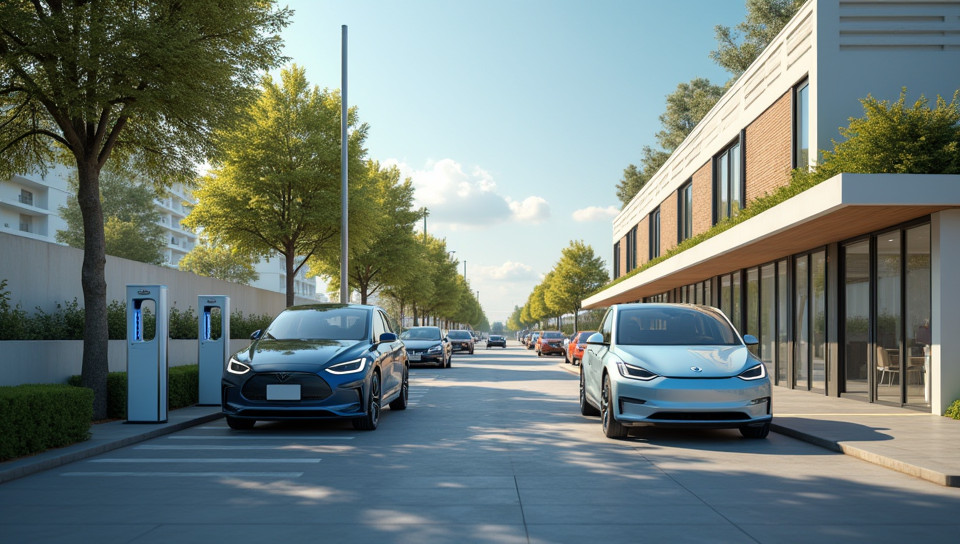Electric vehicle adoption relies heavily on access to public chargers 90%

Electric vehicles have been gaining popularity worldwide, but their adoption is heavily dependent on one crucial factor: access to public charging stations. As the demand for EVs continues to rise, governments and private companies are investing in building a comprehensive network of charging infrastructure. However, despite these efforts, many potential buyers still face significant barriers to purchasing an electric vehicle.
The Problem with Public Charging Infrastructure
The lack of public charging stations is a major concern for those considering buying an electric vehicle. According to the International Energy Agency (IEA), there are over 18 million gasoline-powered cars on the road in the United States alone, but fewer than 300,000 public EV chargers available.
Why Public Charging Infrastructure Matters
Public charging infrastructure plays a critical role in enabling widespread adoption of electric vehicles. Here's why:
- A lack of accessible and convenient charging options can make long-distance travel difficult or even impossible.
- Inadequate charging infrastructure can limit the appeal of electric vehicles to consumers, particularly those who rely on their cars for daily commutes.
- Governments are increasingly recognizing the importance of public charging infrastructure in promoting EV adoption and reducing greenhouse gas emissions.
Current State of Public Charging Infrastructure
While there has been significant progress in recent years, much work remains to be done. In the United States, for example, the majority of public charging stations are concentrated in urban areas, making it difficult for those living in rural or suburban areas to access reliable and convenient charging options.
What Can Be Done?
To accelerate the adoption of electric vehicles, governments and private companies must invest in building a comprehensive network of public charging infrastructure. This can be achieved through a combination of:
- Public-private partnerships to develop new charging stations
- Upgrades to existing infrastructure to increase efficiency and capacity
- Education campaigns to raise awareness about the benefits of EVs and the importance of public charging infrastructure
Conclusion
The adoption of electric vehicles is heavily dependent on access to public charging stations. While progress has been made, much work remains to be done to ensure that these critical charging points are available and accessible to consumers. By investing in public charging infrastructure, governments and private companies can help unlock the full potential of electric vehicles and promote a more sustainable transportation future.
- Created by: Mikołaj Krawczyk
- Created at: Aug. 15, 2024, 12:13 a.m.
- ID: 7215





